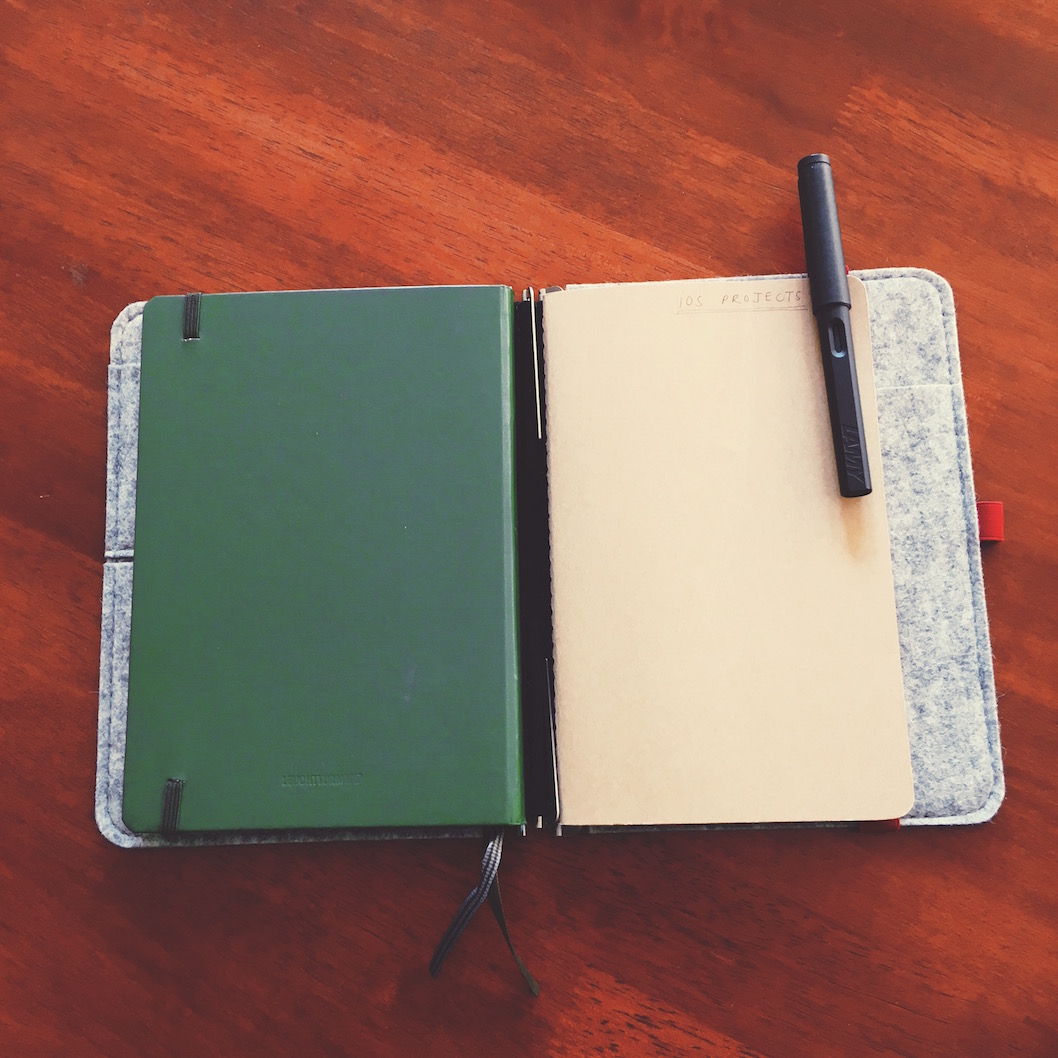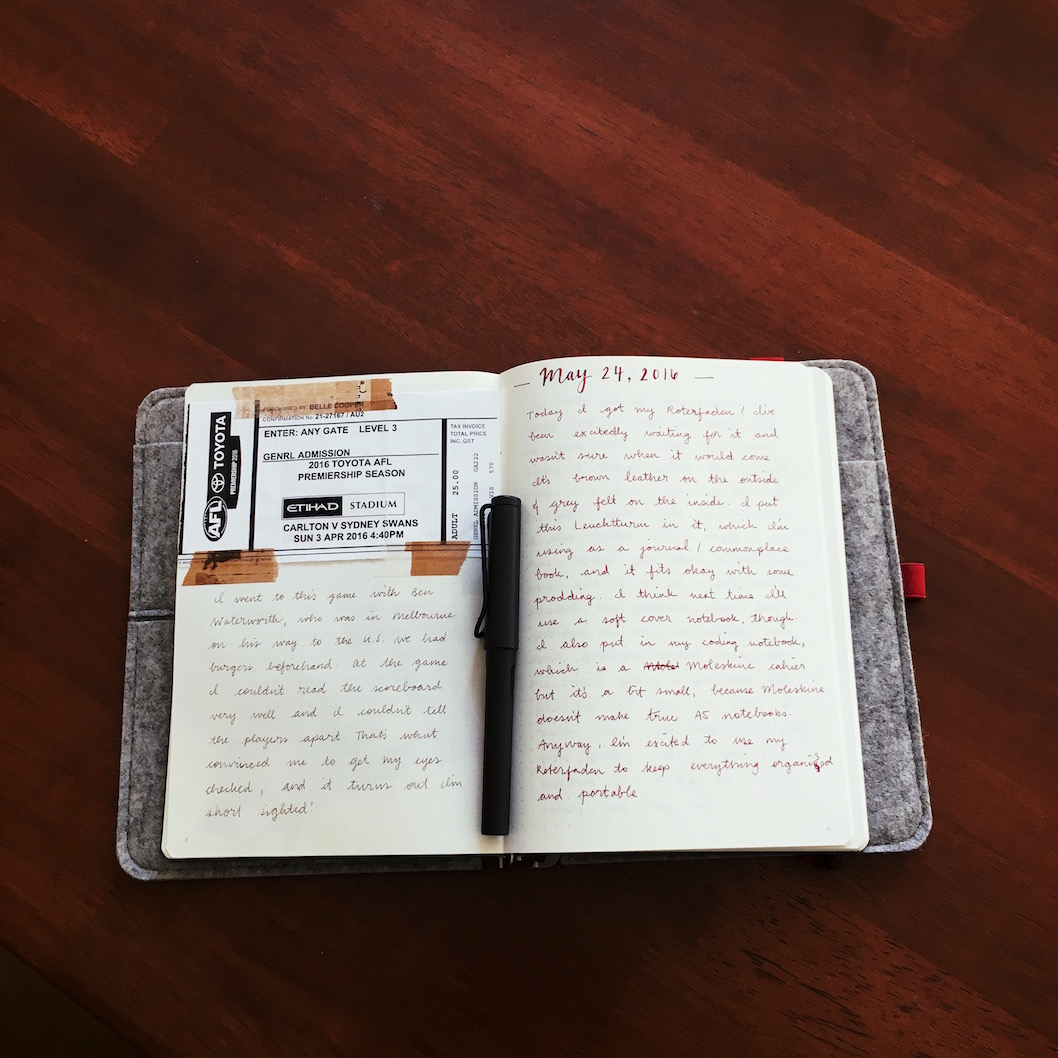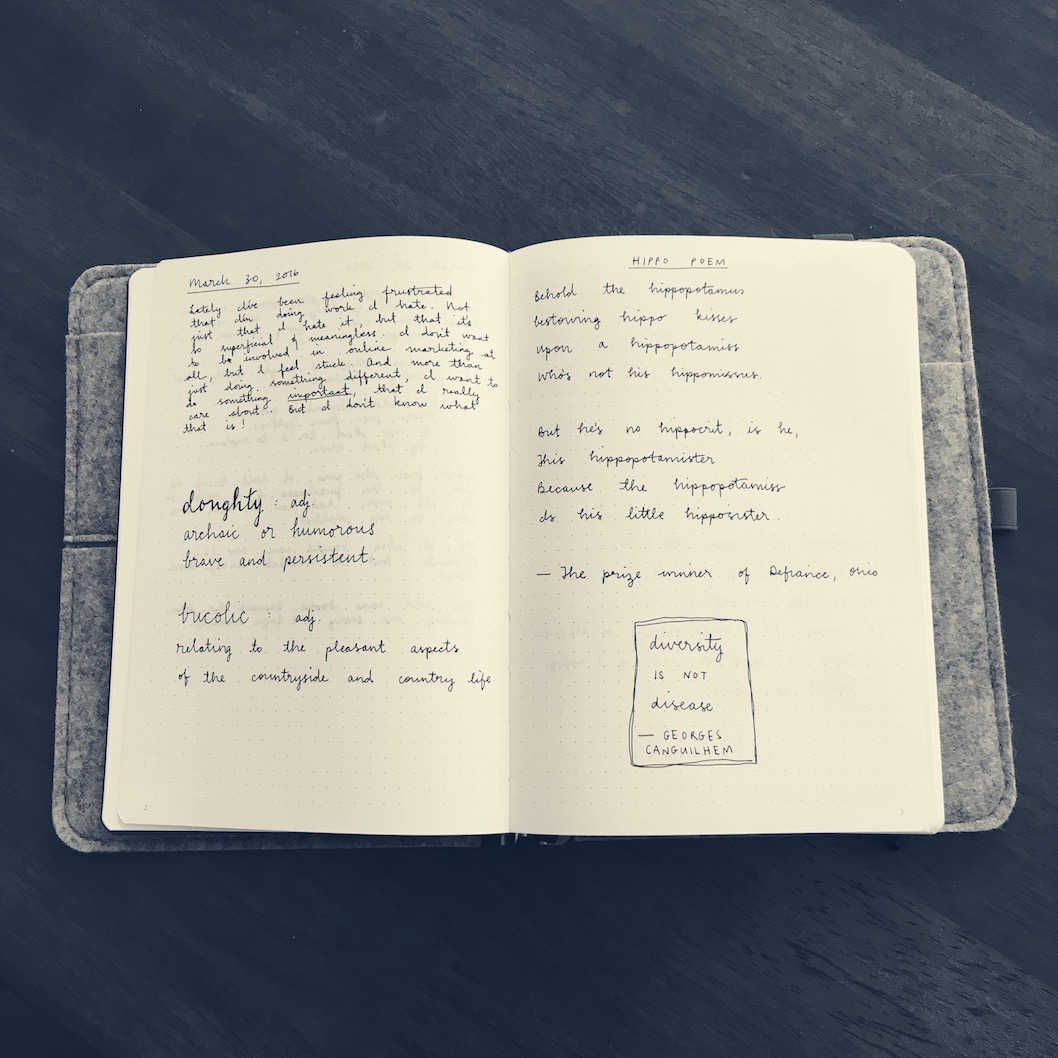How I journal

I've been a fan of journalling in theory for a long time. But I haven't been able to put it into practice consistently.
I've tried apps like Day One, and I've tried automatically saving data about my day like where I went and what music I listened to. But none of these approaches stuck for long.
I tend to be a "when I feel like it" kind of journaller, so my occasional entries end up scattered around in various apps or notebooks.
Recently I've been relying on analogue tools to keep me organised, and I've found I journal more often when I always have pen and paper with me. I like the act of putting pen to paper, and sometimes use journalling as an excuse to do so. For now, I'm sticking with analogue tools because they have the least amount of friction for me.
My current journalling practice
I use hard cover Leuchtturm notebooks for journalling, because I like their paper, and the hard covers make them perfect for saving when full. These notebooks come in lots of different colours and they have cover and spine stickers included so you can label them for easy archiving.

I keep my journal (plus another thin project notebook) in my Roterfaden Taschenbegleiter. For some reason I'm better at carrying notebooks around and really using them when they're in a soft cover like this.
I journal intermittently, mostly when I'm in the mood. But even if I don't always journal at the same time, I have a few go-to ways to write journal entries.
Momentos

I save tickets from theatre, comedy, and football games to stick into my journal. I use washi tape, and usually stick in a few tickets I've collected all at once, rather than as soon as the event is over. I've done this before, then stopped doing it because I couldn't be bothered and wasn't sure I'd even keep my journals long-term, but I find it's a really good way to get a journal entry started. I stick the ticket in first, then write around it with some notes about who I went to the event with, how much I enjoyed it, and anything particularly memorable that happened. This is a good way to relive the event and make the memory of it stronger, as well as making a record of it.
Feelings

Perhaps the only time I write a traditional journal entry is when I'm feeling overwhelmed by my feelings. Writing things down helps me stay calm and stop my mind from racing too much when I'm trying to make a decision or fix a problem. I usually write down how I'm feeling and why, and often some questions I have or aspects of a decision I'm considering. I don't often go back and write another entry later to explain how the situation turned out, which I'll probably regret later, but this type of entry comes mostly from the need for clarity and reflection. Its an in-the-moment type of entry.
Quotes

I like to keep quotes in my journal, even though they're not easily searchable or copy-and-pasteable. The practice of handwriting quotes I like helps me commit them to memory better, and it's nice to have them in my journal when I read through it again later.
Long-term planning
I use my planner for brainstorming and making lists, but sometimes I'm working on some kind of planning that I know I'll want to refer to for a long time to come. The most obvious example is setting goals. I've listed my goals for this year in my journal, and when I wanted to brainstorm goals for years to come, I used my journal for that too.
I know some people like to build a daily habit of journalling, but as a writer I'm somewhat opposed to that idea. Writing is already a chore, since it's how I make my living, and I don't want journalling to become too much effort as well.
Journalling is the one form of writing I have left that I do only when I want to, about what I want to. The freedom of this approach keeps journalling from becoming another format of writing, with all the connotations that has for someone who makes their living as a writer.